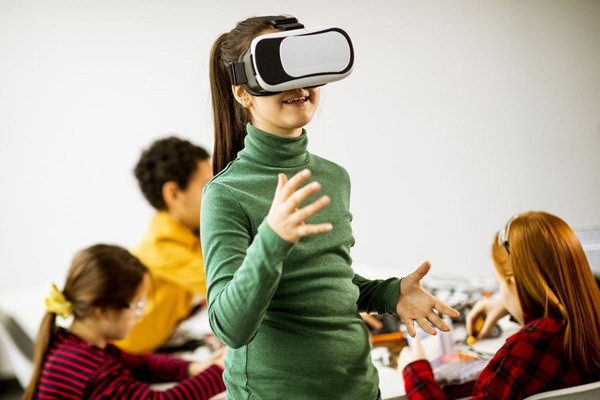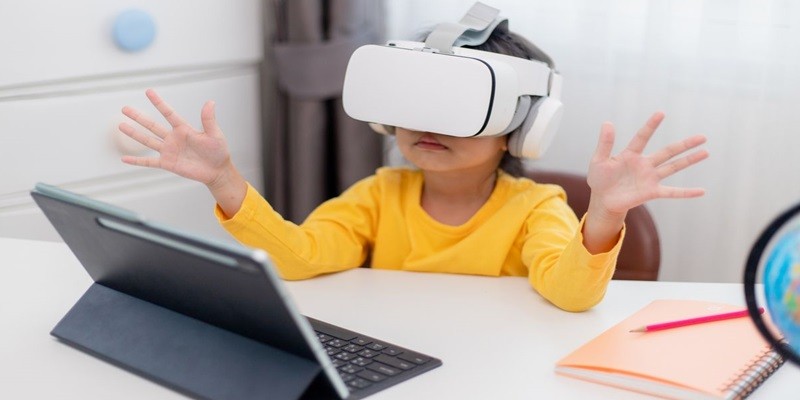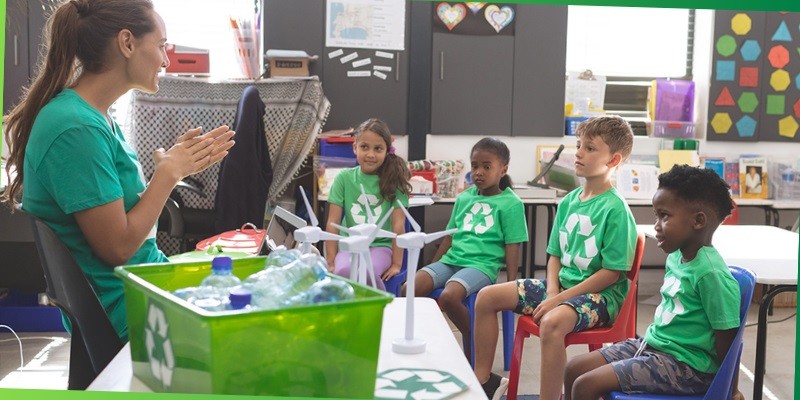Last Updated on January 15, 2025
Virtual Reality (VR) is not just for gamers; it’s making its mark in the world of education. In this article, we’ll delve into the remarkable Benefits of VR In Education. From creating immersive learning environments to enhancing student engagement, VR is revolutionizing the way we learn. So, let’s embark on this educational adventure and discover how VR is transforming the classroom.
Benefits of VR In Education
Enhancing Learning Through Immersion
VR technology transports students to a whole new world, providing them with immersive experiences that traditional methods can’t match. Whether exploring ancient civilizations, diving into the depths of the ocean, or touring far-off planets, VR makes learning an unforgettable adventure.
Fostering Engagement and Focus
One of the key benefits of VR in education is its ability to captivate students’ attention. The interactive nature of VR ensures that students are actively engaged in their learning, promoting deeper understanding and retention of information.

Personalized Learning Paths
VR allows educators to tailor learning experiences to individual students. By adapting content based on each student’s progress and abilities, VR ensures that no one is left behind, making education more inclusive.
Safe and Controlled Experiments
In subjects like science, VR enables students to conduct experiments that might otherwise be too dangerous or expensive to perform in real life. It provides a safe environment for trial and error, promoting scientific curiosity.
Overcoming Physical Barriers
For students with physical disabilities, VR offers a way to experience activities that might be challenging or impossible in the physical world. It breaks down barriers and creates equal opportunities for all.
Real-World Skill Development
From medical simulations to architectural design, VR enables students to gain practical, real-world skills in a risk-free environment. This hands-on learning is invaluable for future careers.
Cost-Effective Education
In the long run, VR can reduce educational costs. It eliminates the need for physical textbooks and materials, making education more accessible and affordable for all.
Bridging Geographic Gaps
VR allows students from different parts of the world to collaborate and learn together in a virtual classroom, fostering global connections and cultural understanding.
Encouraging Creativity
With VR tools for content creation, students can unleash their creativity and design their virtual worlds, fostering innovation and critical thinking.
Boosting Confidence
By facing challenges and solving problems in a virtual environment, students build self-confidence that extends to their real-life experiences.
Benefits of VR In Education: FAQs
Q: How does VR benefit students with special needs?
A: VR provides customized learning experiences for students with special needs, catering to their individual requirements and making education more inclusive.
Q: Is VR safe for children to use in education?
A: Yes, VR is safe for children when used in moderation and under supervision. Age-appropriate content is essential.
Q: Can VR replace traditional teaching methods entirely?
A: While VR offers unique benefits, it’s best used as a supplement to traditional teaching methods to create a balanced educational approach.
Q: Are there any drawbacks to using VR in education?
A: Some concerns include potential health issues like motion sickness and the cost of VR equipment, but these challenges are continually being addressed.
Q: How can educators integrate VR into their curriculum effectively?
A: Educators can receive training in VR technology and collaborate with experts to create engaging VR experiences for their students. Online private schools, such as ICL Academy, are already using cutting edge software and tools to engage students remotely, and the possibility of incorporating VR solutions in the future is certainly possible.
Q: Are there any ongoing research studies on the impact of VR in education?
A: Yes, numerous research studies are exploring the long-term effects of VR in education, and early results show promising outcomes.
Conclusion
The Benefits of VR In Education are undeniable. It’s a powerful tool that can transform learning into an exciting journey, foster engagement, and provide opportunities for personal growth. As VR continues to advance, its role in education will only become more significant. So, educators and students alike should embrace this technology and unlock its full potential.







